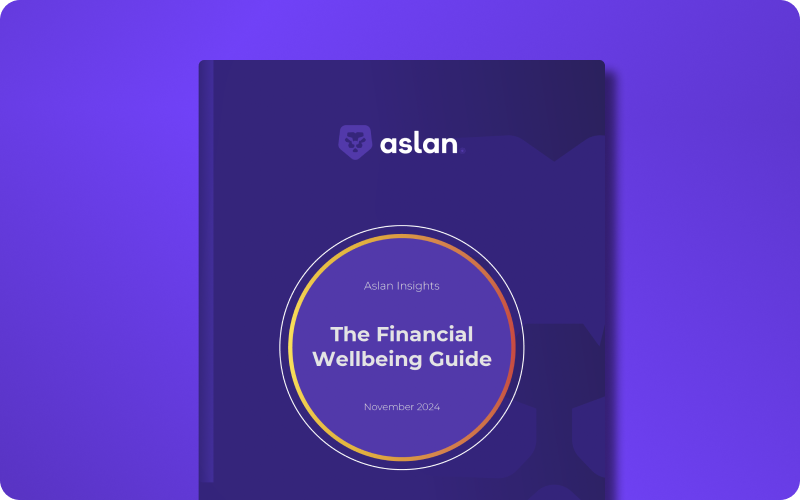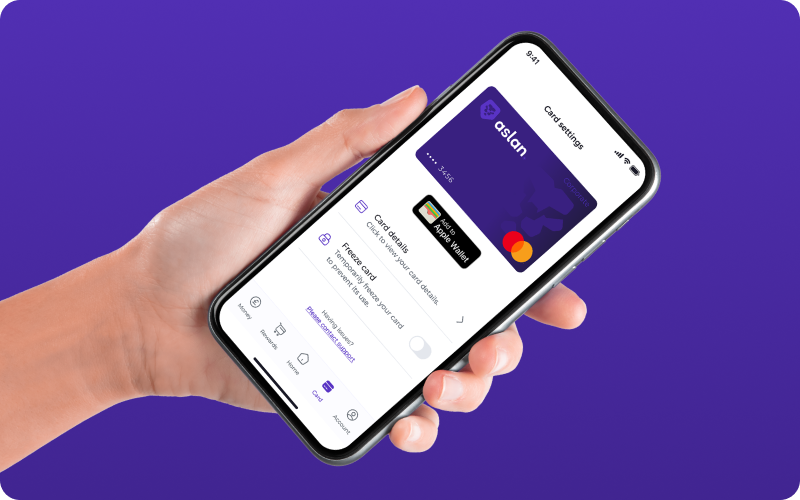The future of employee benefits: why rewarding your employees’ everyday spend is essential for financial wellbeing.
Everyone loves a deal! That is why we always grab the 2-for-1 supermarket offers. Why TKMaxx exists, why we love Black Friday and the Boxing Day sales.
In today’s world, finding benefits that truly engage your workforce is really, really hard. As the workforce continues to evolve, so do the expectations surrounding employee benefits and what companies offer their people. Businesses are no longer able to engage, attract or retain talent with traditional benefit packages alone. Employees are increasingly demanding more personalised, flexible, and relevant benefits that address their real-life daily needs, especially when it comes to their financial health.
After 15 years in financial services and over 1,000 hours of meetings with Reward and People managers, I understand the extent to which people are incentivised by rewards and value back on their purchases. Whether that’s the new grad wanting to make pay go further, or the holder of an Amex Card being smart with their cash. The problem is, rewards are often clunky, more effort than they are worth, or in the majority of cases, inaccessible when needed.
In this article I explore how rewarding employees' everyday spending habits is not only a smart thing to do, but is becoming an essential component of modern benefits programmes. We’ll also discuss the importance of financial wellbeing and how rewards and flexible pay options can transform employee satisfaction.

The evolution of employee benefits
Employee benefits started vanilla. Traditional packages included your salary, health insurance, retirement plans, and extra holiday days. While these benefits remain important, they no longer suffice in a competitive job market. As work and personal lives become ever more intertwined, employees increasingly seek benefits that directly impact their daily lives and overall wellbeing.
Financial security has recently taken on even greater significance. While the days of 10% inflation are hopefully behind us, the economic uncertainty that started in 2022 persists, and is likely to remain that way with ever rising costs of living and, in many cases, heightened financial stress. This is pervasive across income brackets, with consumer credit at all-time highs, even amongst ‘prime’, often higher income, borrowers.
In response, employers have begun expanding benefits packages to include flexible working arrangements, mental health support and financial wellbeing programmes. Gone are the hard-nosed days of “leave your personal baggage at home, you’re at work now”. Yet 44% of people still feel that their employer doesn’t care about their financial wellbeing.
Why does financial wellbeing matter?
Employee compensation & benefits forms the biggest cost of most businesses. Research shows that this is the most important thing for the majority of employees, yet it is notoriously hard to get right.
Pay rises are very expensive for businesses. In most scenarios, following the Autumn Budget 2024, only 30-50% of an employer’s increased remuneration costs will actually land in employees’ bank accounts. Put another way, delivering an employee just £100 more into their bank account will cost the employer up to £280 in England & Wales or £310 in Scotland, when considering 15% employer-contributed national insurance, the lower threshold to contribute to it, employer and employee pension contributions, the apprenticeship levy, employee national insurance, income tax (with thresholds frozen until 2028) and personal allowance reductions for higher earners. It’s wildly inefficient, and therefore very hard to solve the underlying problem through pay alone.
Research shows that good personal financial management results in both greater satisfaction with pay, as well as better financial wellbeing. Therefore employers who help deliver good financial management to employees are likely to see greater contentment with their broader compensation package, as well as a more productive and engaged workforce.
For those in control of their finances, generous financial perks and benefits are highly incentivising. While for those less on top of things, practical help is needed to alleviate both personal and workplace stresses. Personal financial management is highly correlated with mental health. Financial worries are the most commonly reported cause of anxiety, nearly 90% of employees say that finances impact their mental health, and in the most extreme cases, 46% of those in “problem debt” have mental health concerns. That is why both financial wellness and mental health are key to corporate wellbeing strategies, and come hand-in-hand.
Poor mental health costs employers in the UK an estimated £42-45 billion annually through presenteeism, sickness absence and staff turnover. And even for those who are good with their money, incentivisation through generous financial perks and benefits is very well received.
Offering practical benefits that make employees’ pay go further can make a real impact, and significantly improve employee wellbeing. Whether employees have financial concerns or not, embedding financial wellbeing benefits into an employer's package demonstrates a clear commitment to employee welfare.

How do rewards on all spend improve financial wellbeing?
Many cashback/discounts programmes are cumbersome to use, or can only be used at certain merchants, and so don’t get the attention they deserve.
To deliver successful financial wellbeing, a rewards programme needs strong adoption and to seamlessly integrate into employees' everyday routines with minimal friction. The most effective way to achieve this is through the use of a card, which allows employees to earn points on their purchases with no extra steps or inconvenience.
Card-based rewards efficiently boost employees' disposable income, because it’s easy to use, and available everywhere. A small contribution from the compensation pool to pay a subscription for rewards represents a very efficient distribution of value to your employees, since the end-retailers pay for the rewards, and cashback is not taxed.
An annual pay rise event is a necessity, but highly inefficient (see above), and all too quickly forgotten. Points base rewards allow employees to experience the tangible benefits of increased savings, tied to their employer, with none of the inefficiencies of traditional remuneration, they receive 100% of the benefit. This delivers a real sense of satisfaction and reward on every use.
Increased disposable income:
Employees earn points on all their purchases, anywhere in the world. These effortless, uncapped rewards add up and provide employees with extra funds they can use to save, enjoy, or invest in other areas of their lives.
Low cost to employers:
Providers charge an affordable subscription fee, with the rewards paid for by participating retailers or service providers. Cashback is not taxable.
Financial control and transparency:
Employees see real, tangible rewards for their spending, fostering a sense of financial control and empowerment.
The beauty of card based rewards programme lies in their simplicity and universal appeal. Whether an employee is buying groceries or filling up their car, points turn everyday spending into a financial win.
Improving financial lives across income brackets, by combining with On-Demand Pay.
Pairing simple reward points with On-Demand Pay (Earned Wage Access) provides immediate, tangible benefits for all employees. With On-Demand Pay employees can access a portion of their already earned pay, for free, with more made available to them as they earn it. This is an effective budgeting tool that re-establishes daily habits with a day’s work.
This innovative approach can help those employees who use overdrafts and credit cards to reduce, or even eliminate their use. For those in it for the rewards, this just makes their money work harder for them:
“Rather than use my debit card, I can access some of what I earned today but wouldn’t otherwise be paid for three weeks, and I even get rewards on the spend. I’ll put my last paycheque into savings earlier, too.”
However those who are persistently going into their overdraft are very often shy to talk to employers or colleagues about a less-than-ideal financial situation. The free access to pay, with rewards on top, means they can be proud of using it, and can then use it simply and easily:
“it’s sensible for the CEO to use it, so why not me”.
By delivering financial support in a seamless, intuitive way, employers can increase employee satisfaction, all while encouraging responsible financial habits. This holistic approach to financial wellbeing not only boosts employees’ income but also strengthens their overall financial security.

Okay but what exactly is On-Demand Pay?
In 1900, we were paid weekly with cash in a brown envelope. This made budgeting easy. Today, we are paid monthly, which is complicated to budget around, whatever your income level. For example, many businesses will pay early at Christmas, meaning that many employees will be paid only 3 weeks after they were paid in November, yet then have a full 6 weeks to wait until the January pay day. That's double the time! This makes budgeting really, really challenging.
On-Demand Pay empowers employees to take control of their money to suit their lives. For some this means efficiency with their money, for others, this means avoiding the use of high-interest credit options like overdrafts and credit cards. This benefit is valuable to employees across all income levels, many higher earners also have more liabilities (family, mortgages etc.). Flexible access to pay acknowledges individual financial situations and provides a practical cashflow solution to alleviate financial stress, promoting healthier financial wellbeing overall.
Lower reliance on borrowing:
30% of us go into our overdraft every single month (on the 8th of the month, on average), paying about 40% interest. The majority of credit cards are not repaid in full each month. Flexible pay options minimise the need for credit, which can trap employees in cycles of debt and financial insecurity.
Improved employee engagement:
Financial flexibility both enhances the bank balance, as well as employees’ sense of control over their income, improving overall satisfaction and increasing productivity.
The ability to provide On-Demand Pay gives employees more autonomy over their finances and offers employers a strategic advantage in talent retention. It also sends a clear message; this company cares about the financial wellbeing of its workforce.
Employers offering this type of benefit have seen significant improvements in employee satisfaction and engagement. By addressing a core pain point, these programmes create an environment where employees feel valued, supported, and more financially secure.
In the UK, around 60% of employees are more likely to stay with an employer that offers financial wellbeing programmes such as On-Demand Pay or instant rewards. This figure rises even higher among younger workers, with 75% of 18-24 year-olds and 65% of 25-34 year-olds saying they are more likely to stay with an employer providing these kinds of benefits.

Conclusion
In today’s competitive job market, offering benefits that improve financial wellbeing is no longer optional. By incorporating modern solutions like reward points on daily spend and On-Demand Pay, companies can offer value to users across all income brackets, impacting their daily lives and making their pay go further. This enhances employee satisfaction, reduces financial stress, and improves productivity. These benefits empower employees to take control of their finances and offer a significant advantage in attracting and retaining top talent.
Here at Aslan we offer employers the opportunity to implement an innovative and highly engaging benefit that works with your existing payroll, no impact on your cashflow and completely free for your employees to use. To find out more, book a demo to see Aslan in action.
As the future of work continues to evolve, the importance of rewarding employees for their everyday spending will only grow. Companies that recognise the essential role of financial wellbeing in a comprehensive benefits package will be better positioned to thrive in a fast-changing landscape.















